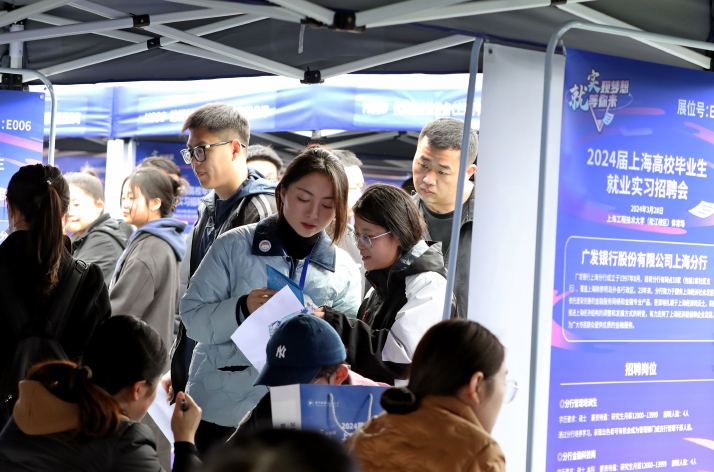| China |
| Anti-competition agreements draw increasing attention in China | |
|
|
 A technician inspects products at a technology company in Langfang, Hebei Province, on February 28 (XINHUA)
Two months after resigning from his position as a real estate agent, Li Feng received a surprising deposit of 9,119.08 yuan ($1,261) into his bank account. The payment came from his former employer, Pacific Rehouse, a property sales and rental brand based in Shanghai. The transfer description indicated that it was "non-compete compensation," a term unfamiliar to Li at the time. Even more surprising was that over a month later, Pacific Rehouse filed a case against Li, accusing him of violating the non-compete agreement and claiming 500,000 yuan ($69,144) from him. After a lengthy process of negotiation, arbitration and litigation, the Shanghai Chongming District People's Court ruled that the non-compete agreement was binding on Li. However, the court decided to reduce the penalty for his breaching of the non-compete contract to 200,000 yuan ($27,657), and ordered him to return the non-compete compensation he had received. Li has appealed the decision and is currently awaiting the outcome of the second instance trial. A non-compete clause is a provision in an employment contract that restricts an employee from working for a competitor in the same industry for a specific period after leaving the company. Its rampant use has led to disputes between employees and their former employers, attracting public attention and sparking discussions in China. Debatable ground At first, Li was unaware that he had signed a non-compete agreement. However, he later discovered that he had indeed signed one in March 2021. Li explained to China News Service, a Beijing-based news agency, that employees at or above a certain level were summoned to the company headquarters to sign what was presented as a new contract. Li described the "contract" as actually being an employee code of conduct, approximately 20 pages long. An employee of the company swiftly flipped through the pages on behalf of the other employees, who then signed at the designated locations without sufficient time to read all the contents. According to Li, as he was not given a copy to keep for himself, he remained unaware of its specific contents. It was only during the arbitration process that Li discovered the relevant provisions of the non-compete agreement within the handbook he had signed. According to the ruling issued in April 2023 by the labor dispute arbitration committee of Chongming District, Pacific Rehouse stated that as per the non-compete agreement, the non-compete period would continue for one year following the termination of the labor contract. Pacific Rehouse claimed Li should have provided proof of compliance with the non-compete obligations by the fifth day of each month. However, Li failed to provide any relevant evidence or explanation. Further investigation by Pacific Rehouse revealed that Li had taken up a position as a store manager at another real estate brokerage firm after resigning from Pacific Rehouse. The business scope of this new company overlapped with that of Pacific Rehouse, creating a competitive relationship. Therefore, Li's actions were deemed to have violated the non-compete agreement. During the arbitration process, Li maintained that he had been completely unaware of the non-compete clause in the code of conduct he had signed. He also argued that if he had not signed it, he would have been forced to resign. However, the arbitration committee found that Li failed to provide evidence to support his statements, leading to the rejection of his claim, and the committee upheld the validity of the non-compete agreement. Zhang Dawei, Chief Analyst at Centaline Property, another real estate agency, told China News Service that there is relatively high staff turnover in the real estate brokerage industry, with agents frequently switching between different agencies. Some employees, before leaving a company, may take with them a significant amount of property listings and client information, and, in some cases, even snatch away deals that were about to be closed. This harms the interests of the company. Therefore, non-compete agreements are used to safeguard a company's rights and interests. At the same time, this agreement is mutually binding, meaning that employees who refrain from engaging in work that competes with the company within the specified timeframe are entitled to receive corresponding financial compensation.  A job fair in Shanghai on March 28 (XINHUA)
Legal but not necessarily just Non-compete agreements are widely used by Internet tech giants, among others, in China. According to the Labor Contract Law of China, persons subject to competition restrictions shall be limited to senior managers, senior technicians and other persons who are under the confidentiality obligation to the employer. However, what is noteworthy is that non-compete agreements are being used for an increasing number of ordinary employees. "It is generally believed that executives are the main subject of non-compete obligations. In practice, there is controversy over whether the legal definition of 'other persons who are under the confidentiality obligation' includes ordinary staff members," Chen Ruling, a lawyer specializing in employment-related areas at Beijing Yingke Law Firm's Chengdu Office, told Beijing Review. Chen said about 10 percent of her clients or advice-seekers ask about disputes related to non-compete agreements. According to her experience, there are other issues concerning non-compete agreements that are causing controversy. For example, whether the scope and duration of the restrictions are reasonable and clear, whether the employee has actually joined a competitive enterprise or engaged in competitive activities, and whether the amount compensation and liquidated damages are reasonable. "It is typically observed that courts tend to support non-compete penalty ranging between three to five times the total non-compete compensation amount. This is considered a reasonable scale. However, due to the current lack of specific upper limits for non-compete penalties in existing laws and regulations, it is possible for exorbitant compensation claims to be legally permissible but not necessarily fair or just," Chen said. On April 23, the U.S. Federal Trade Commission issued a final rule to ban non-compete clauses nationwide, aiming to protect the fundamental freedom of employees to change jobs, increasing innovation, fostering new business formation, and promoting competition. Following the announcement, Lin Bin, cofounder and Vice Chairman of Chinese technology company Xiaomi, said in a post on China's microblogging platform Weibo, "Non-compete agreements significantly impede talent mobility and act as stumbling blocks to technological innovation. If laws were enacted to prohibit such agreements in China, Xiaomi would be the first to implement them." "I personally think it is not necessary to copy the U.S. rule, given different national conditions and development stages," Chen said. "However, it is worthwhile to explore the possibility of setting a reasonable range for non-compete restrictions and an upper limit for penalty amounts. This would be a step toward achieving a better balance between protecting a company's trade secrets and safeguarding the employment rights of workers." (Print Edition Title: Non-Compete Concern) Copyedited by G.P. Wilson Comments to luyan@cicgamericas.com |
|
||||||||||||||||||||||||||||||
|